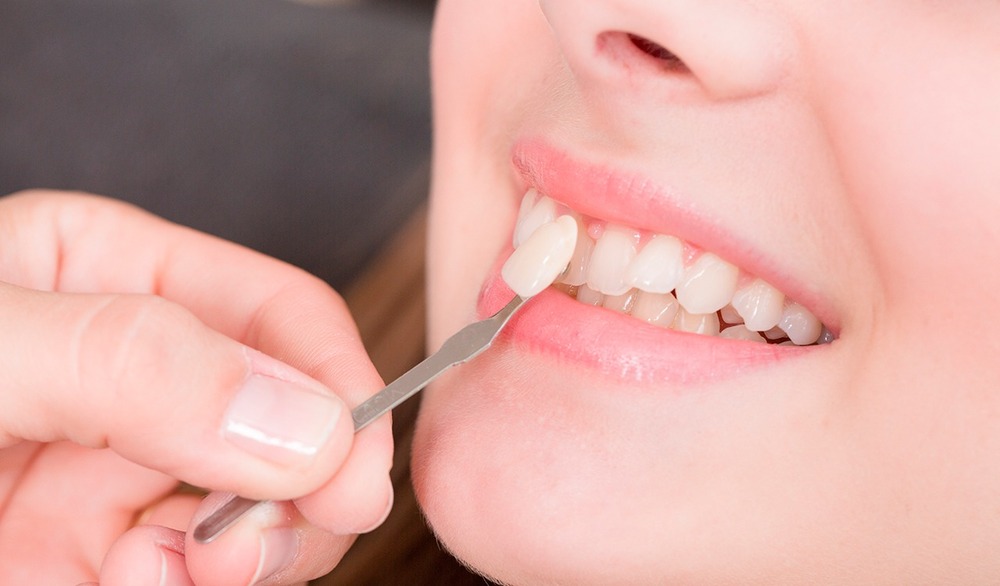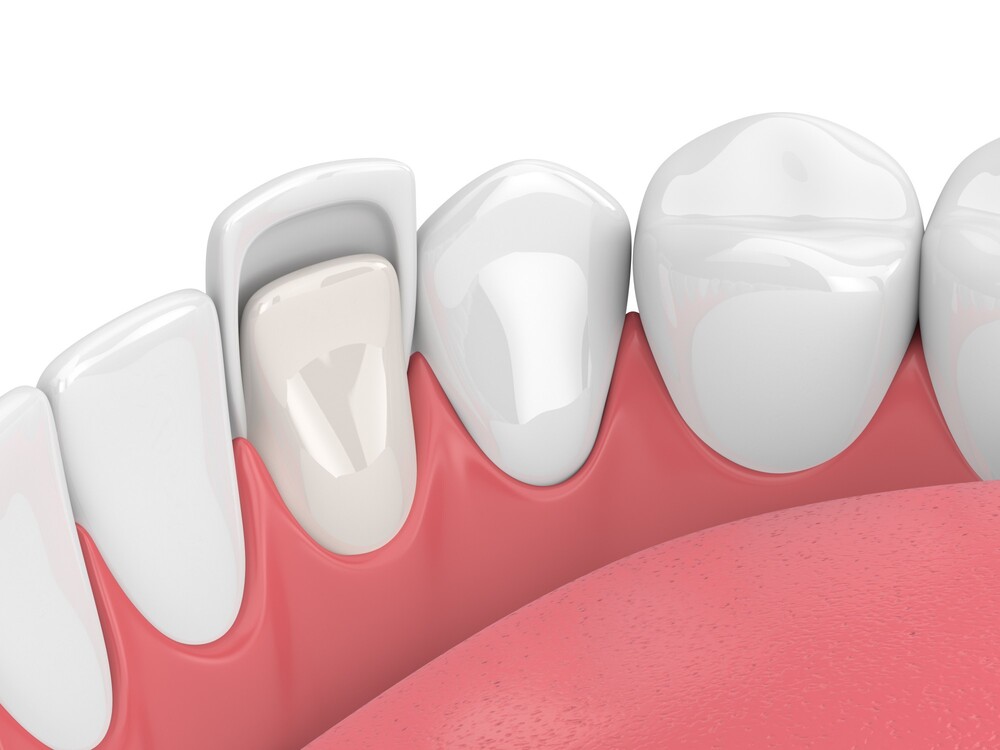
The Shocking Truth: Do Veneers Really Cause Teeth to Rot?
Are you worried about veneers causing tooth decay? You’re not alone. This common concern stops many people from pursuing their dream smile.
Laminate veneers have transformed cosmetic dentistry, providing a life-changing solution for those seeking flawless teeth. These ultra-thin shells, custom-made to cover the front surface of teeth, can instantly enhance:
- Tooth color
- Shape
- Size
- Alignment
The increasing popularity of veneers comes from their ability to create stunning smile makeovers with minimal invasiveness. Celebrities and social media influencers flaunt their veneer transformations, making them a highly desired cosmetic dental treatment.
But what happens to your natural teeth underneath?
The truth might surprise you. Veneers don’t directly cause tooth decay or damage. The secret lies in proper dental care and maintenance. Let’s explore the connection between veneers and dental health, separating facts from myths to help you make an informed decision about your smile transformation.
If you’re considering this life-changing procedure, don’t hesitate to contact FineUp Clinic for expert advice and affordable options in Turkey. Our friendly team is ready to answer your questions and guide you through the process of achieving your dream smile.
Understanding Laminate Veneers
Laminate veneers are ultra-thin shells custom-made to bond directly to the front surface of teeth. These dental enhancements serve as a transformative solution for various cosmetic concerns, including:
- Discolored teeth resistant to whitening
- Chipped or worn teeth
- Gaps between teeth
- Misshapen or slightly crooked teeth
Two main types of laminate veneers exist:
Porcelain Veneers
- Made from high-quality ceramic material
- Highly durable and stain-resistant
- Natural light-reflecting properties
- Require 2-3 dental visits
- Last 10-15 years with proper care
Composite Veneers
- Created from tooth-colored resin material
- Applied directly to teeth in one visit
- More affordable option
- Typically last 5-7 years
- Easier to repair if damaged
The aesthetic benefits of laminate veneers are remarkable. They create a natural-looking smile transformation through:
- Custom color matching to surrounding teeth
- Precise shaping for facial harmony
- Light-reflecting properties mimicking natural enamel
- Immediate improvement in tooth appearance
- Minimally invasive procedure preserving tooth structure
Modern laminate veneers use advanced materials like E-max glass ceramics, offering exceptional durability and resistance to staining while maintaining a lifelike appearance.
The Truth About Veneers and Tooth Decay
Veneers don’t directly cause tooth decay. These thin shells protect the front surface of your teeth while maintaining their natural structure. The real culprit behind tooth decay lies in poor oral hygiene practices, not the veneers themselves.
Think of veneers as a shield – they create a protective barrier against harmful bacteria on the front surface of your teeth. The natural tooth structure behind the veneer remains intact and can still be susceptible to decay if not properly cared for.
Key factors that contribute to tooth decay with veneers:
- Inadequate cleaning around veneer edges
- Trapped food particles between veneer and tooth
- Poor brushing techniques
- Skipping regular dental check-ups
Maintaining healthy teeth with veneers requires:
- Brushing twice daily with fluoride toothpaste
- Using dental floss to clean between teeth
- Regular professional cleanings
- Immediate attention to any sensitivity or discomfort
The space between your natural tooth and the veneer needs special attention during cleaning. Bacteria can accumulate in these areas if left unchecked, potentially leading to decay. Your dental hygiene routine plays a crucial role in preventing tooth decay and ensuring your veneers’ longevity.
Regular dental visits help identify potential issues early. Your dentist can spot signs of decay or damage before they become serious problems, protecting both your natural teeth and your investment in veneers.

Factors Influencing Tooth Decay Risk with Veneers
Proper dental care habits play a crucial role in preventing tooth decay with veneers. Here are key factors that affect your decay risk:
1. Daily Oral Hygiene Routine
- Brush twice daily with fluoride toothpaste
- Use dental floss to clean between veneers
- Rinse with an alcohol-free mouthwash
- Clean the gum line thoroughly
2. Warning Signs to Watch For
- Sensitivity around veneer edges
- Discoloration at the gum line
- Bad breath or unusual taste
- Gum inflammation or bleeding
3. Risk Factors That Increase Decay Chances
- Poor brushing technique
- Skipping dental check-ups
- Sugary diet and acidic drinks
- Grinding teeth at night
The space between your natural tooth and veneer requires special attention during cleaning. Bacteria can accumulate in these areas, leading to decay if left unchecked. Regular professional cleanings help remove stubborn plaque and tartar buildup around veneers.
Your dentist might recommend specialized cleaning tools designed for veneer maintenance. These tools reach difficult spots where standard brushes might miss. Using them correctly helps prevent decay and extends your veneers’ lifespan.
Protective measures like wearing a night guard can shield your veneers from grinding damage. This protection reduces the risk of gaps forming between the veneer and tooth surface where bacteria thrive.
Comparing Porcelain and Composite Veneers: Which Is Better?
Porcelain and composite veneers offer distinct advantages for different patient needs. Here’s a detailed comparison:
Porcelain Veneers
- Exceptional durability (10-15 years lifespan)
- Superior stain resistance
- Natural light reflection similar to real teeth
- Requires multiple appointments
- Higher initial cost
- Professional repairs needed if damaged
Composite Veneers
- Shorter lifespan (5-7 years)
- More affordable option
- Single appointment procedure
- Easy repairs and modifications
- Prone to staining
- Less resistant to wear and tear
Several factors influence veneer longevity:
- Quality of materials used
- Dentist’s expertise and technique
- Patient’s oral hygiene habits
- Diet and lifestyle choices
- Regular dental check-ups
The choice between porcelain and composite veneers depends on individual preferences and circumstances. Porcelain veneers suit patients seeking long-term solutions with premium aesthetics. Composite veneers work well for those wanting quick, budget-friendly improvements or temporary solutions.
Your bite pattern, teeth grinding habits, and daily activities play crucial roles in determining the best option. A thorough consultation with your dentist helps identify which material aligns with your specific needs and lifestyle.
Debunking Myths About Veneer Treatment and Dental Health
Let’s clear up some common misconceptions about laminate veneers and dental health:
Myth #1: “Veneers destroy natural teeth”
Reality: Modern veneer applications require minimal tooth preparation, preserving most of your natural tooth structure.
Myth #2: “Veneers make teeth sensitive”
Reality: Any sensitivity after veneer placement typically subsides within days. Long-term sensitivity is rare when properly applied.
Myth #3: “You can’t eat normally with veneers”
Reality: Veneers allow normal chewing functions. Simple adjustments to eating habits help protect them – like avoiding extremely hard foods.
Myth #4: “Veneers look fake”
Reality: Today’s veneers, especially glass ceramic materials like Emax, provide natural-looking results that match surrounding teeth.
Myth #5: “Veneers stain easily”
Reality: Porcelain veneers resist staining. They maintain their color even with exposure to coffee, tea, or wine.
These myths stem from outdated information or poor-quality treatments. Modern veneer treatments offer safe, effective solutions for enhancing your smile while maintaining dental health.
Seeking Professional Advice for Optimal Veneer Care
Your dentist plays a crucial role in keeping your veneers in good shape and preventing tooth decay. Regular visits to the dentist help them:
- Check how well your veneers are doing
- Spot any potential problems early on
- Give you personalized tips on how to clean your veneers
- Make adjustments to your care routine based on what you specifically need
During your dental visits, make sure to include:
- Yearly dental check-ups
- Professional cleaning sessions
- Assessment of how well your veneers are bonded
- Evaluation of the surrounding natural teeth
Remember: Everyone has different oral care needs. Your dentist can create a maintenance plan just for you that takes into account the type of veneers you have, your oral health, and your lifestyle habits. This professional guidance will help keep your veneers looking great and your natural teeth healthy for many years.
For those seeking exceptional dental care, FineUp Clinic in Turkey is a premier destination known for its outstanding dental and cosmetic treatments.
FAQs (Frequently Asked Questions)
Do veneers cause teeth to rot?
No, veneers do not directly cause tooth decay. They are thin shells that bond to the teeth, but proper dental care is essential to prevent decay.
What are laminate veneers?
Laminate veneers are ultra-thin shells custom-made to bond directly to the front surface of your teeth, enhancing their appearance.
What factors influence the risk of tooth decay with veneers?
Factors influencing tooth decay risk with veneers include proper dental care habits, daily oral hygiene routines, and regular dental check-ups.
What should my daily oral hygiene routine include if I have veneers?
You should brush twice daily with fluoride toothpaste and use dental floss regularly to maintain good oral hygiene.
What warning signs should I watch for if I have veneers?
Be alert for sensitivity around the edges of the veneers or discoloration at the gum line, as these may indicate potential issues.
How do porcelain and composite veneers compare?
Porcelain veneers offer exceptional durability (10-15 years lifespan) and superior stain resistance, while composite veneers are a more affordable option with a shorter lifespan (5-7 years) and can be applied in a single visit.
